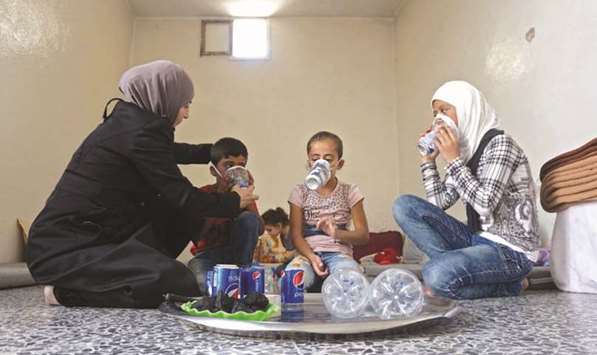Turkey is reinforcing its military posts inside Syria’s rebel-held province of Idlib, Turkish and Syrian rebels sources say, seeking to deter a government offensive which it says would unleash a humanitarian disaster on its border.
President Tayyip Erdogan has warned that an assault by the army and its Russian and other allies on Idlib, home to around 3mn people, will uproot hundreds of thousands in one of Syria’s last rebel strongholds.
Already hosting 3.5mn Syrians — the world’s biggest refugee population — Turkey says it cannot absorb more victims of the war and has accused the West of abandoning it to face the consequences of President Bashar al-Assad’s reconquest of Syria.
At a meeting in Tehran on Friday with the presidents of Russia and Iran, seen as the last realistic chance to avert all-out conflict in the insurgent-held region, Erdogan failed to win a pledge of ceasefire from Assad’s two main backers.
But his Defence Minister Hulusi Akar says Turkey remains determined to halt the weeks-long air strikes on Idlib and forestall a ground offensive, while officials warn that Turkey would respond if its forces inside Idlib come under fire.
Three Turkish security and government officials told Reuters that troops, armoured vehicles and equipment had been sent to the Syrian border.
A senior security source said the army has reinforced 12 Turkish military posts inside Idlib itself.
“We have a military presence there and if that military presence is damaged or attacked in any way, it would be considered an attack on Turkey and would therefore receive the necessary retaliation,” the source said.
The observation posts were set up in the Idlib region last year under an accord with Russia and Iran designating Idlib and parts of neighbouring provinces a “de-escalation zone”. Three similar zones, on Syria’s southern border with Jordan, to the east and to the north of Damascus, have since been recaptured by the Syrian army and its allies.
A senior Syrian rebel said Turkey had sent dozens of armoured vehicles and tanks, as well as hundreds of special forces personnel to Idlib, a move he said showed Idlib would not share the fate of the other rebel regions. “There are very big reinforcements of Turkish forces inside Syria and these observation posts have now in effect become permanent military bases,” Mustafa Sejari said.
The Turkish military does not comment on troop movements, but Reuters television footage has shown military convoys heading to the border region in the last week.
Rebel sources told Reuters that Turkey has also stepped up supplies to the rebel forces in Idlib in recent days, including ammunition and rockets.
Although it opened its doors to Syrians escaping the fighting in the early years of the conflict, Turkey has since built a wall along its 900km border with Syria.
It says it cannot take more refugees, and Turkish aid and security officials say that in the event of conflict in Idlib they would seek to shelter displaced people inside Syria rather than hosting them on Turkish soil.
“The refugees...will not be accepted into Turkey because previous experiences have shown that with such migrant waves, the entrance of radicals and terrorists into Turkey have been too much,” the security official said.
“We will keep the refugees in Syria for the safety of both Turkey and European countries.”
UN Syria envoy Staffan de Mistura said two weeks ago there were an estimated 10,000 fighters in Idlib designated by the United Nations as terrorists.

Um Majid (left) tries an improvised gas mask on family members in her home in Binnish in Syria’s rebel-held northern Idlib province as part of preparations for any upcoming raids, yesterday.
